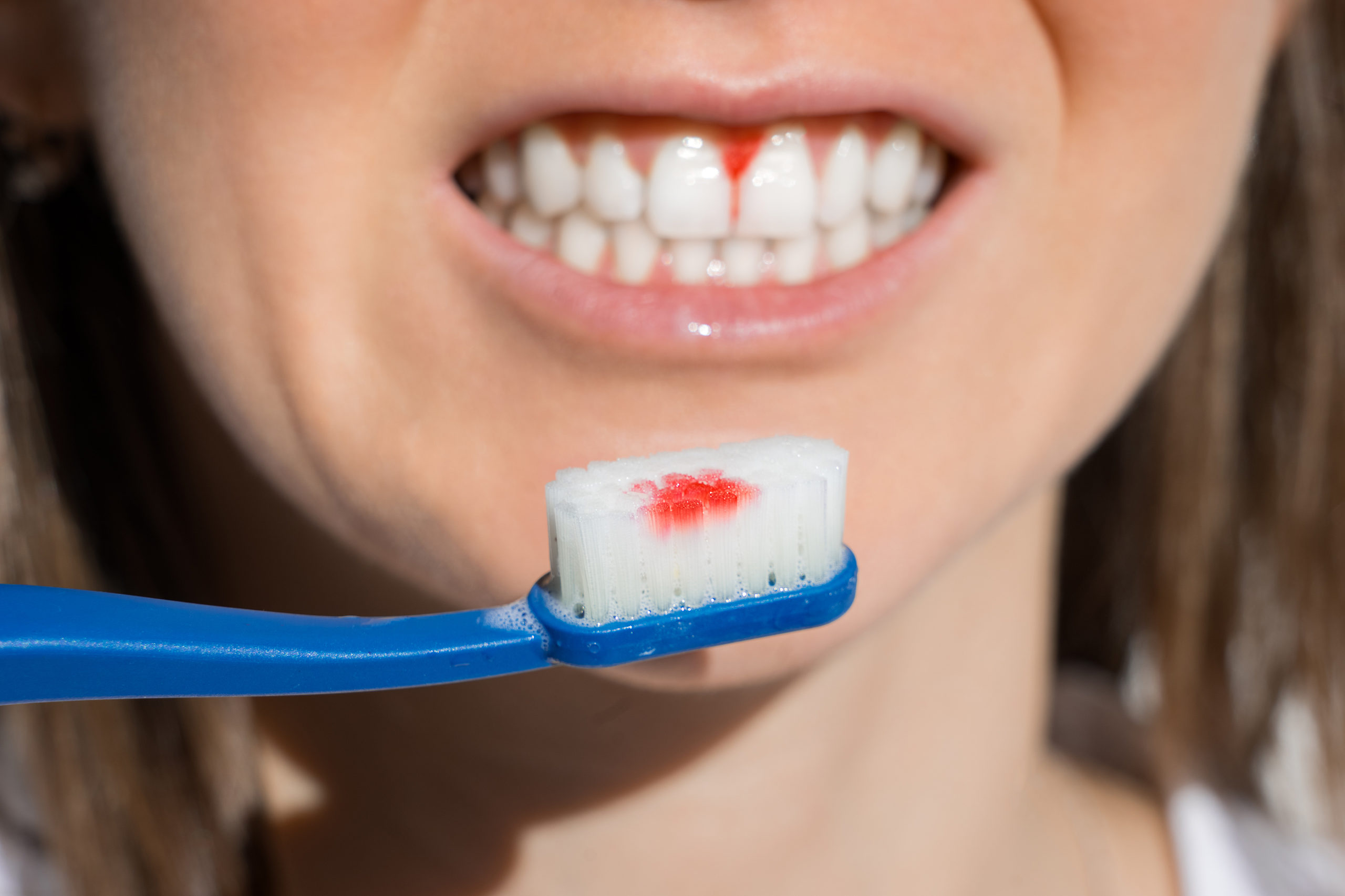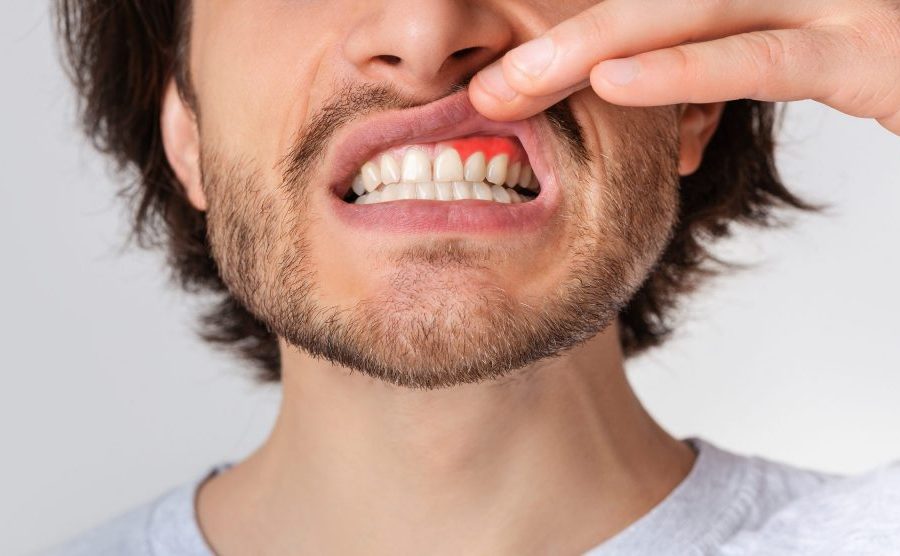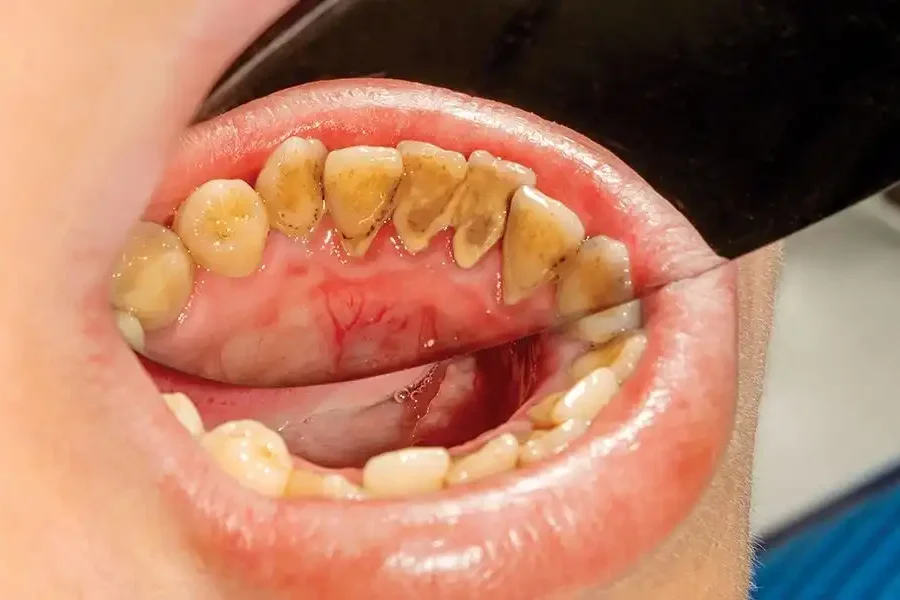
Gum bleeding is a neglected condition that could signal underlying severe health issues. This article provides information on gum bleeding, its causes, treatment methods, and preventive measures. Additionally, it discusses the negative consequences of neglecting gum bleeding and when you should seek dental care.
- What Is Gum Bleeding?
Gum bleeding is a general term for bleeding that occurs in the delicate tissues of the gums. Under normal conditions, healthy gums do not bleed during brushing or flossing. However, if you experience gum bleeding, it is often a sign of a health problem.
This bleeding occurs in the delicate tissues of the gums and can sometimes be noticed during brushing or flossing. Gum bleeding can indicate various conditions related to gum health and should not be ignored.
- What Causes Gum Bleeding?
Gum bleeding can occur due to various factors. A deficiency in vitamins C and K can negatively affect gum health and increase the risk of bleeding. Smoking can also affect gum health, increasing the risk of bleeding and making the gums more sensitive.
Gum diseases such as gingivitis (gum inflammation) and periodontitis (inflammation of the gums and surrounding tissues) can cause bleeding. Uncontrolled blood sugar levels in individuals with diabetes can also impact gum health.
Gum bleeding is more common in people with bleeding disorders such as hemophilia. Insufficient brushing, lack of flossing, or infrequent dental check-ups can also cause it. Gum problems are also more common in individuals with weakened immune systems.
- Treatment Methods for Gum Bleeding
Professional treatment for gum bleeding is provided based on the recommendation of a dentist. Treatment methods vary depending on the underlying causes of gum bleeding and the patient’s overall health. Some professional techniques for treating gum bleeding include:
- Scaling and Root Planing: One of the common causes of gum bleeding is tartar. Tartar is a hard layer formed from accumulated plaque and minerals on the teeth. A dentist can use special tools to remove tartar from the surfaces of the teeth and gums. This can help reduce gum bleeding and improve gum health.
- Gum Surgery: Surgical intervention may be necessary in advanced gum diseases. Gum surgery may involve adjusting the gums, cleaning deep pockets, and regenerating bone. These surgical procedures are performed to restore gum health and prevent the progression of gum problems.
- Antibacterial Medications: A dentist may prescribe antibacterial medications to control and treat gum infections. This can reduce inflammation in the gums and help reduce bleeding.
- Gum Regeneration Treatments: Gum regeneration treatments may be applied in gum recession or damage. These treatments can involve surgical interventions to restore the aesthetic appearance and function of the gums.
- Counseling on Gum Health: A dentist can counsel the patient on regular brushing, flossing, and oral hygiene habits.
Treatment for gum bleeding depends on the patient’s condition and the severity of the gum problem. Therefore, a dentist must consult a dentist to determine appropriate treatment options.
- How to Prevent Gum Bleeding Without Going to the Dentist?
You can control and prevent gum bleeding at home by following regular oral hygiene habits and some home treatment methods. Brush your teeth regularly, preferably twice a day, morning and night. While brushing your teeth, gently massage your gums to increase blood circulation.
Use dental floss to remove plaque and debris between your teeth. This helps keep your gums healthy and prevents bleeding. Use antibacterial mouthwashes to kill bacteria and microbes in your mouth, maintaining gum health. You can seek recommendations from your dentist on products for your oral hygiene.
Adopt a healthy and balanced diet to impact your gum health positively. Consuming fruits and vegetables rich in vitamins C and K can help strengthen your gums.
Smoking and excessive alcohol consumption can negatively affect gum health and increase bleeding. Stress can increase the risk of gum bleeding. You can reduce your stress levels and protect your gum health by practicing stress management techniques.
Regular check-ups at the dentist are essential to monitor gum health and intervene early. To prevent gum bleeding and maintain gum health, regularly apply these home treatment methods.
- What Can Happen if Gum Bleeding Is Neglected?
If gum bleeding is neglected, it can lead to serious gum problems and more general health issues. Some negative consequences of neglected gum bleeding include:
- Progression of Gum Diseases: Gum bleeding can signify gum diseases such as gingivitis or periodontitis. Neglected bleeding can lead to the progression of gum diseases and more severe health problems.
- Tooth Loss: As gum diseases progress, the supportive tissues of the teeth, including bone and gums, may be damaged.
- Bone Loss: Advanced gum diseases can cause damage to the jawbone and result in bone loss. This can affect the teeth’ stability and alter the jaw’s structure.
- Bad Breath: Neglected gum bleeding and gum diseases can cause bad breath. Gum inflammation and infections can increase foul-smelling bacteria in the mouth, causing bad breath.
- General Health Problems: Gum diseases have been associated with other health problems such as heart disease, diabetes, and respiratory infections. Neglected gum bleeding can increase the risk of these general health problems.
- Pain and Discomfort: Advanced gum diseases can cause pain and discomfort. Gum inflammation and infections can lead to various discomforts.
Neglecting gum bleeding increases the risk of gum diseases progressing and the emergence of general health problems. Early intervention can help prevent serious consequences.
- When Should You See a Dentist During Gum Bleeding?
If you experience gum bleeding, it is recommended that you visit a dentist in the following situations:
- Gum bleeding lasts for more than a week
- Gum bleeding is severe
- You notice redness, swelling, or pain in the gums
- You notice gum recession
Gum bleeding can be a sign of severe gum disease.
- What Should Be Done to Avoid Gum Bleeding?
To avoid gum bleeding, you should take care of your oral hygiene. Brush your teeth adequately and use dental floss. It is essential not to miss dental appointments and adopt a healthy diet. Gum bleeding is one of the earliest signs of gum disease. If you experience gum bleeding, it is recommended that you see your dentist without delay to determine the underlying cause and receive treatment.




